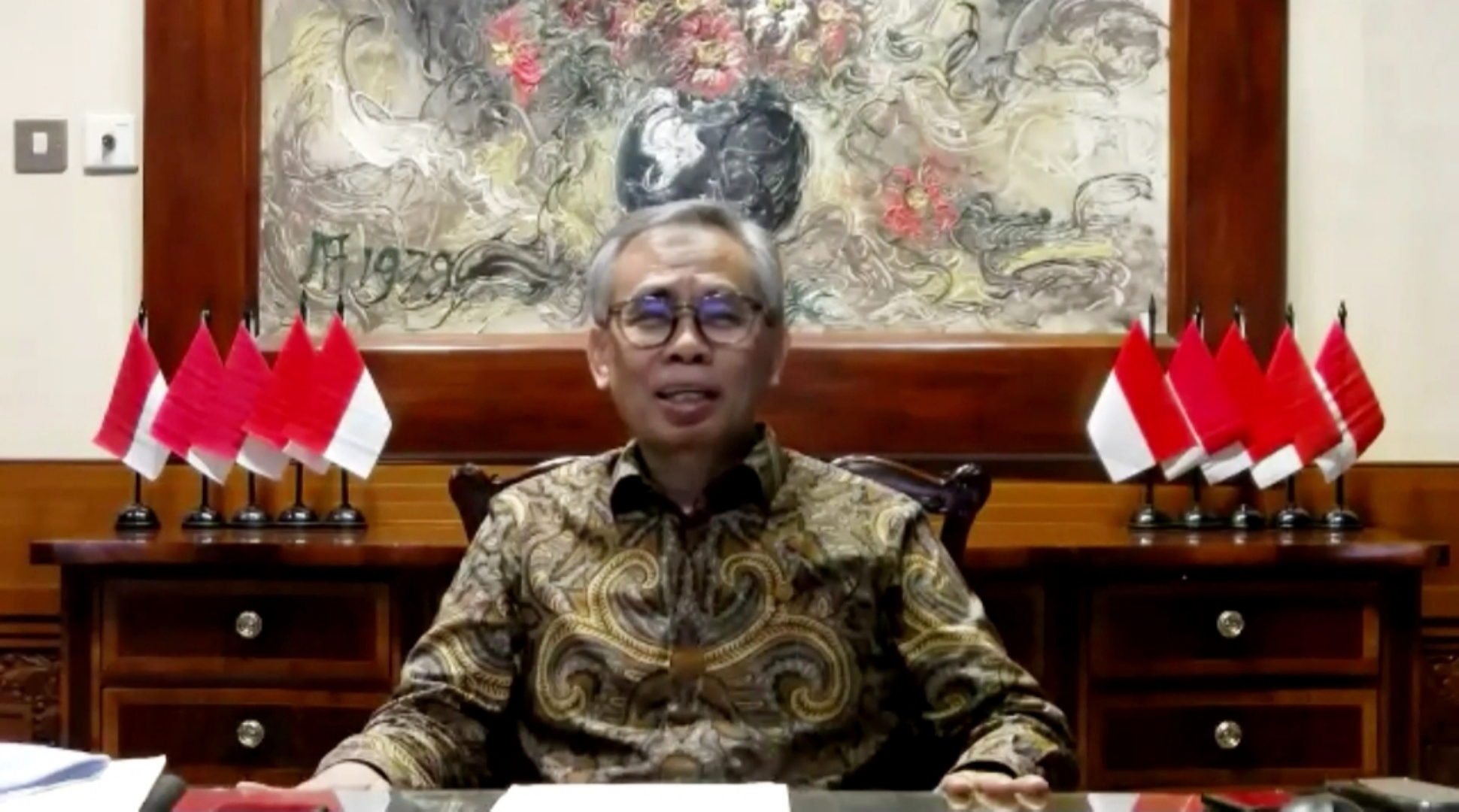MM FEB UI General Lecture: OJK Relaxation Policy during Covid-19
Nino Eka Putra ~ PR of FEB UI
DEPOK – (26/8/2020) On Wednesday (26/8/2020), the Master of Management Program , Faculty of Economics and Business, Universitas Indonesia (MM FEB UI) held a webinar general lecture, with the theme “OJK’s Relaxation Policy During the Covid Pandemic”.
The speakers in this General Lecture were Wimboh Santoso, Ph.D., Chairman of the Board of Commissioners of the Financial Services Authority (OJK); moderated by Prof. Rofikoh Rokhim, Ph.D., Chair of the MM FEB UI Study Program; and a closing remark by Prof. Ari Kuncoro, Ph.D., Rector of the University of Indonesia.
Wimboh Santoso, explained that Covid-19 affected the public in making purchases. Personal restrictions and safety during Covid-19 led to an increase in online purchases by the public. Based on the results of the same survey, 58% of Indonesian consumers changed their purchases to using digital methods. In addition, the results of the MCKinsey survey (July, 2020) stated that 40% of people are optimistic that the economy will revive in the next 2-3 months, as before Covid-19.

The government projects Indonesia’s economic growth in 2020 to be at -1.1% – 0.2%, while in 2021 it will be at 4.5% – 5.5%. Amidst weakening growth in gross domestic product (GDP), the majority of financial services businesses still recorded positive growth. Efforts to accelerate the National Economic Recovery Program, including the extension of various programs until December 2020, accelerate the process of proposing new clusters, redesigning the programs to be more effective, accelerating the program bureaucracy processes.
Meanwhile, to maintain liquidity during the pandemic, with a policy of loosening liquidity (quantitative easing through the purchase of government securities by the Central Bank of Indonesia), increasing the policy rate, decreasing the statutory reserve requirement, increasing the Macroprudential Liquidity Buffer (PLM), easing liquidity measures, and delaying implementation of International standards. The POJK No.11 / POJK.03 / 2020 and POJK No.14 / POJK.05 / 2020 contain direct smooth restructuring to restrain the rate of increase in non-performing loans (NPL) and reduce capital pressure, determine the quality of one pillar of assets, and additional working capital .
Wimboh explained that “The package of policies issued by the OJK, among others, safeguard the real sector business fundamentals with one pillar of collectability and credit restructuring, maintain financial stability (temporary ban on short selling, asymmetric auto rejection and a 30 minute trading halt r when a 5% decrease occurs, no pre-opening session trading, and share buy back without a general meeting of shareholders), other policies (relaxation packages, such as deadlines for submission of financial statements, haircut value, stimuli for the investment management industry, initial and public offerings, shortening of trading hours, allowing delivery of reports through an electronic signature system, collecting fines, extending the deadline for submitting periodic reports, calculating the level of solvency and pension funding, and implementing a fit and proper test via video conference) ” .
Wimboh closed his presentation with “In the future, OJK will adopt 4 other policies, first, the plan to extend the relaxation of OJK regulations on NPL restructuring until March 2022 (extended for 1 year). Second, further stimulus from the government to encourage the distribution of additional working capital loans for MSMEs and corporations with a guarantee scheme from the government. Third, banks need to immediately adapt their business processes in the new normal era by accelerating the digitization of the financial services sector. Fourth, supporting labor-intensive businesses or businesses that have a multiplier effect on economic growth through the additional relaxation of provisions in the financial services sector. “.

Rector of UI Ari Kuncoro also gave a closing remark. In addition to appreciating Mr. Wimboh Santoso for providing insight to MM FEB UI students, Ari added that , “Indonesia has the advantage of preparing a habitat in the capital markets for the stability of the rupiah exchange rate. In the previous presentation, OJK implemented policies, one of which was extended financing for the production sector to minimize problems. However, to increase public consumption, we must find a way before vaccines are available. This is important to provide a sense of safety for the public and relieve their anxiety, thereby increasing public transactions. With the environment that has been prepared by the OJK in the third and fourth quarters, positive results can be expected,” Prof. Ari Kuncoro concluded. (hjtp)
(am)



